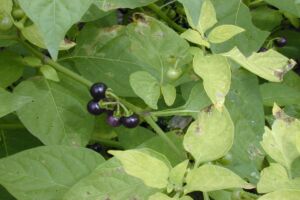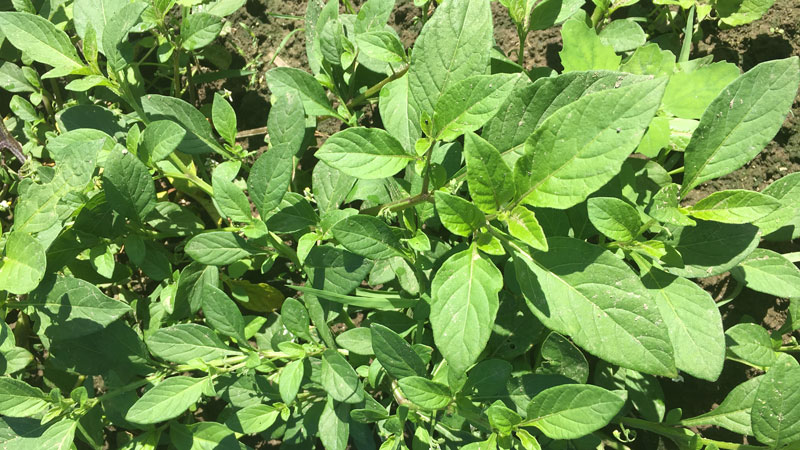Managu Agribusiness Plan with Ksh 20000
In recent years, the health risks associated with a diet that relies heavily on fast food, processed foods, and red meat have been widely publicized, leading many people to become more conscious of what they are consuming. As a result, there has been a growing demand for native and organic foods that were once a staple of the diet of our ancestors. These foods, which include managu, terere (also known as amaranth), mrenda, and other organic green vegetables, are increasingly recognized for their numerous health benefits, such as their high levels of vitamins, minerals, and antioxidants. This has created a good business opportunity that anyone can venture into with little capital. This post will break down managu agribusiness plan with Ksh 20000.
One of the key benefits of these traditional foods is that they can help people maintain good health without relying on modern medication. For many generations, people in many parts of the world have relied on these nutrient-rich foods to help prevent diseases and promote overall health and wellbeing.
Among these traditional foods, managu stands out for its great potential for agribusiness. This plant is in high demand and is often in short supply, with many vegetable markets and supermarkets running out of it quickly. Managu is a leafy green vegetable that is native to Africa and is known for its distinctive flavor and high nutrient content. It is rich in vitamins A and C, iron, calcium, and other essential minerals, making it a valuable addition to any healthy diet.
With its growing popularity and high demand, managu presents an excellent opportunity for farmers and entrepreneurs to start an agribusiness venture. By cultivating managu and other traditional foods, farmers can not only meet the growing demand for healthy, nutrient-rich foods, but also contribute to the preservation of traditional agricultural practices and the protection of biodiversity.
To put things in perspective, a Ksh. 10 managus used to provide food for a family of four for two days. However these days it is a challenge to buy enough food supplies to feed two persons for a day even with Ksh. 200. There has never been a better time to start a business growing, packing, and selling managu given its tremendous rise in popularity. You simply need to think more creatively than everyone else and start your business with Ksh 20,000 in order to earn Ksh 1.2 Million annually.
What Is Managu?
 The Kikuyu name for the African nightshade plant is managu. It is referred to as Mnavu in Swahili, Amanagu in Kisii, Namasaka in Luhya, Osuga in Luo, kitulu in Kambas, and isoiyot in Kipsigi. The herbaceous plant often grows into a height of around 1 meter and has several green branches.
The Kikuyu name for the African nightshade plant is managu. It is referred to as Mnavu in Swahili, Amanagu in Kisii, Namasaka in Luhya, Osuga in Luo, kitulu in Kambas, and isoiyot in Kipsigi. The herbaceous plant often grows into a height of around 1 meter and has several green branches.
Native to the environment of Africa, this resilient vegetable grows with little to no maintenance. These seeds can be sown during the wet season, and they can be harvested in as little as 45 days.
The top leaves of each shoot are then removed, allowing the remaining leaves to develop into larger, greener leaves. This might be done once a week for three months, with each harvest bringing in good sales.
Managu agribusiness plan with Ksh 20000
How Much Money to Invest
- 50 x 100 piece of land – 5,000 (lease per year)
- Manure & Fertilizer – 5,000
- Labour & Transport – 5,000
- Managu Seeds – 1,000
- Other expenses – 4,000
Total Budget = Ksh.20,000
How Profitable Is It?
A 50 by 100 foot piece farm may produce 200 to 300 kg of fresh managu every week. The average cost per kilogram is Ksh.30. This means that you can make a minimum of Ksh.6,000 per week or Ksh.24,000 per month.
The advantages are much greater if you increase the size of your farm. For instance, an acre of land can yield managus valued more than Ksh. 140,000 per month. The three-month length of each harvesting season results in a yearly income of Ksh. 420,000. Three seasons make up a year, so being consistent for a year can bring in Ksh1.26Million.
Challenges:
- Finding productive land is difficult.
- Unpredictable patterns of rainfall is the second main challenge.
- Prices typically fall during seasons with abundant harvests.
Scaling Up the business
You can broaden your market beyond managu to include native vegetables like terere (amaranth), kunde, spinach, and mrenda. You might start branding and packaging your goods and bringing it directly to the market to boost your revenues even further. Some farmers even dry, package, and export their managus. Some people use the dried veggies to fortify other dishes, including terere wheat flour. In other words, there aren’t many options available to you for this kind of business.
Final word
The increasing interest in traditional and organic foods is a positive trend that is not only good for people’s health, but also for the environment and for the livelihoods of farmers and rural communities. It is also good for those who would like to venture into an inexpensive agribusiness.
Important to note:
That the information here might not be the most current because conditions, regulations and policies keep changing often. You have a responsibility to do your due diligence and research on the latest and most accurate information.
~~~~~~~
Biashara Poa is resource for business ideas and tips. We share different business ideas and business tips we think are important to our readers. You can and should always do more research on to see if they are worth investing in.
The information we share here includes but not limited to business plans, agribusiness ideas, business tips, business equipment and machinery etc.
We often recommend dealers/manufacturers of some machinery we feature in our posts. These are companies we have vetted and know they are genuine. You can therefore go ahead and buy from them with confidence.
We encourage our readers to always go beyond the information we share here and research more about these business ideas.

